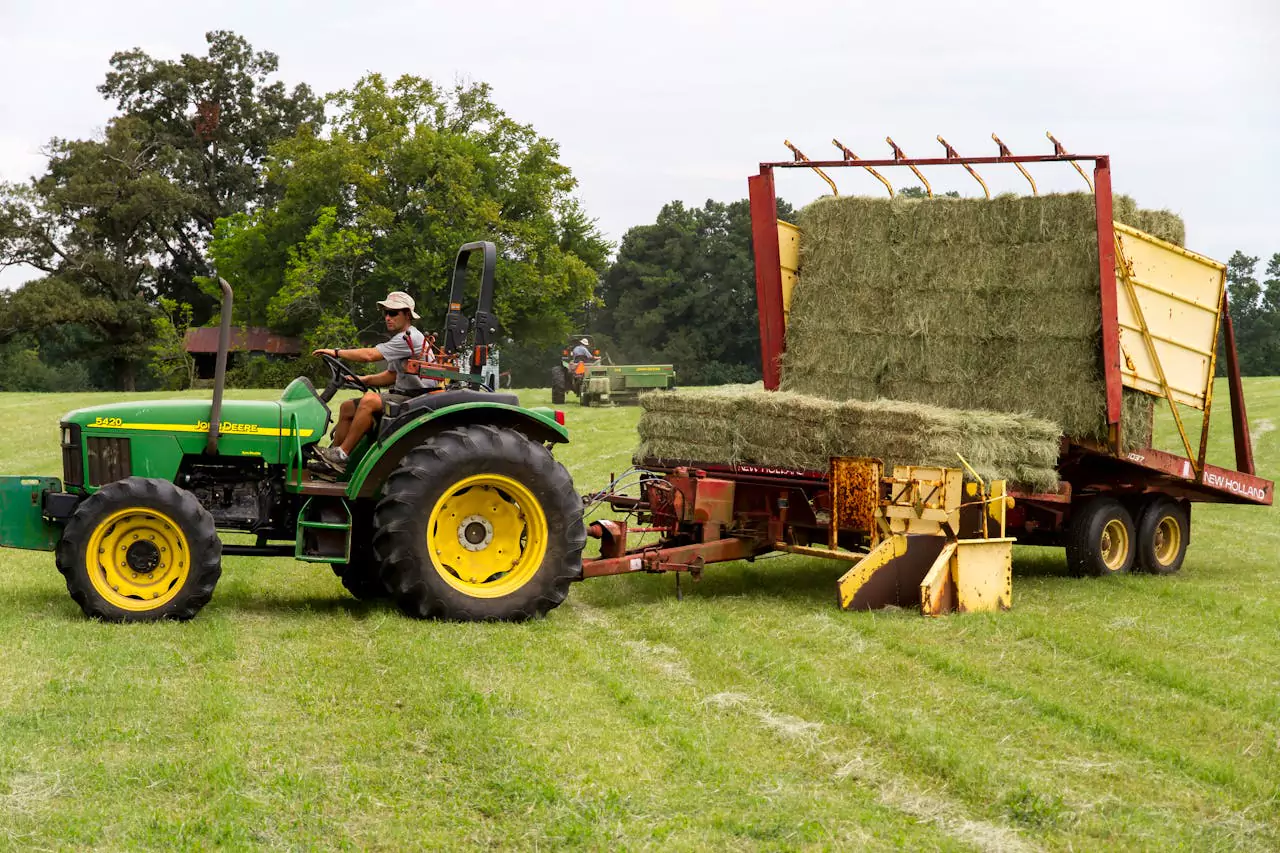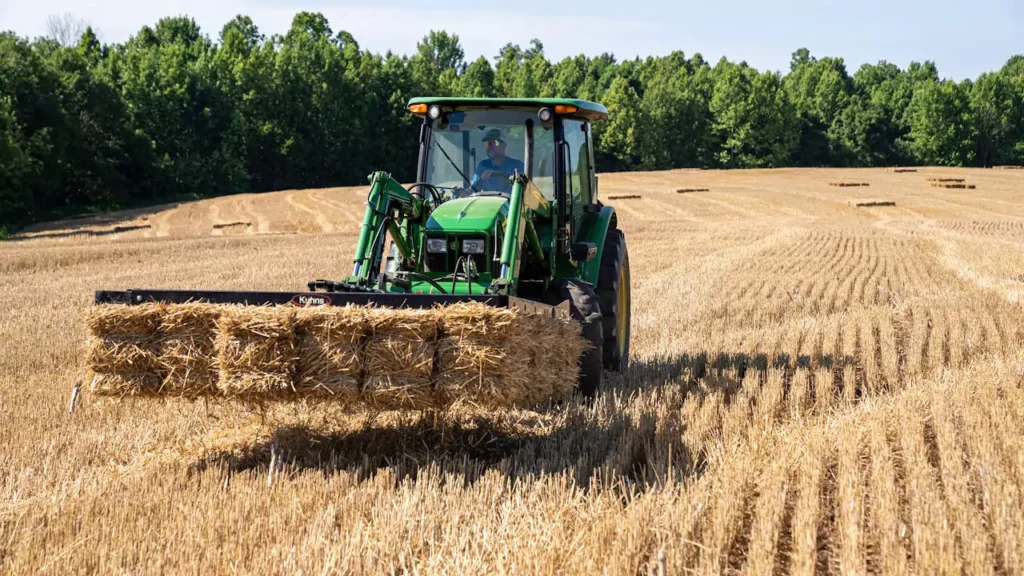
A new report titled “Europe Electric Tractor Market – Industry Outlook & Forecast 2025-2030″ has been added to ResearchAndMarkets.com’s growing portfolio of industry insights. According to the report, the European electric tractor market, valued at USD 34 million in 2024, is projected to nearly double by 2030, reaching USD 74.06 million. This growth reflects a robust compound annual growth rate (CAGR) of 13.85% during the forecast period, fueled by a collective push toward decarbonizing agriculture and advancing sustainable farming practices.
Key Markets Leading the Transition
Germany, France, Italy, the United Kingdom, and the Netherlands are emerging as pivotal players in driving the adoption of electric tractors throughout Europe. These nations are not only setting the tone for green agricultural transformation but are also benefiting from comprehensive government support, targeted incentives, and a rising consumer preference for eco-conscious farming technologies.
Germany stands out with a projected CAGR of 14.15% from 2024 to 2030, reflecting its aggressive push under initiatives like the National Climate Action Plan. France and Italy, with their diverse agricultural sectors, are also witnessing strong adoption rates—particularly in vineyards, orchards, and other specialized segments where compact electric tractors offer a clear operational advantage. Meanwhile, the UK and the Netherlands are increasingly embracing electric tractors through favorable policies and technological experiments, including the integration of solar-powered and battery-swapping models.
Market Drivers and Trends
Technological Advancements in Battery and Charging Infrastructure
One of the primary forces propelling market expansion is rapid innovation in battery and charging infrastructure. High-capacity lithium-ion batteries and the emergence of solid-state alternatives are significantly increasing operational time and decreasing downtime. These improvements are crucial for ensuring the reliability and competitiveness of electric tractors against conventional diesel models.
Moreover, the development of fast-charging systems and battery-swapping technology is making continuous field operations more feasible. Manufacturers such as Solectrac have launched advanced models tailored to smart farming applications, demonstrating how modern design and innovation are reshaping agricultural machinery. Coupled with policy backing from the European Union’s Green Deal and the Common Agricultural Policy (CAP), these technological strides are making electric tractors an increasingly attractive choice.
Connectivity and Smart Farming Integration
The incorporation of cutting-edge connectivity technologies like 5G and LoRaWAN is revolutionizing the European electric tractor market. These technologies allow for enhanced precision agriculture through real-time data exchange, autonomous navigation, and remote performance monitoring.

Notable collaborations underscore this trend—Monarch Tractor has partnered with Verizon Business to integrate connectivity into its platforms, while CNH Industrial is developing advanced telematics solutions that can support autonomous field operations. These innovations are further supported by government investments in rural broadband infrastructure, ensuring that even remote agricultural areas can harness the benefits of digital farming.
Policy Support for Green Transition
Public policy remains a cornerstone of the electric tractor market’s growth. European governments are aggressively pushing toward carbon neutrality, and electric tractors are seen as essential tools in achieving climate goals. Incentives like purchase subsidies, tax breaks, and low-interest loans are improving accessibility for small- and medium-sized farms.
The EU’s CAP continues to emphasize sustainable agriculture, which has been instrumental in promoting electric equipment. As battery efficiency improves and maintenance costs decrease, electric tractors offer a compelling total cost of ownership. Projections suggest that electric tractors could account for over 10% of the total tractor market share in Europe by 2030.
Growing Awareness of Sustainable Farming
Rising environmental consciousness among both consumers and farmers is further amplifying market momentum. Electric tractors align perfectly with the increasing demand for sustainable and organic food production methods. Developments such as Tadus’s 130 kWh battery-powered models and Yanmar’s compact tractors equipped with ELEO battery systems exemplify how innovation is meeting market needs.
Moreover, integration with GPS, IoT, and farm management platforms is allowing electric tractors to become central components in smart farming ecosystems. Industry leaders like Monarch and John Deere are investing heavily in research and development to create tractors that are not only eco-friendly but also highly efficient and autonomous-ready.
Market Challenges
Limited Penetration Due to Conventional Tractor Dominance
Despite the impressive growth trajectory, the electric tractor market in Europe still faces several headwinds. Chief among these is the entrenched dominance of diesel-powered tractors, particularly in large-scale farming operations where power and endurance are critical.
While the Western European conventional tractor market continues to grow, electric alternatives remain a niche. High upfront costs, limited charging infrastructure, and lingering concerns about performance reliability in heavy-duty applications are major hurdles. Nevertheless, markets like Norway and Denmark are showing early signs of overcoming these barriers through targeted subsidies and pilot programs focused on smaller-scale and specialty farming.
Competitive Landscape and Vendor Strategies
The European electric tractor market is evolving rapidly, with both long-established agricultural machinery manufacturers and newer electrification-focused entrants vying for market share. Industry leader John Deere continues to push the boundaries with smart farming solutions integrated into its electric tractors. CNH Industrial, via its New Holland Agriculture brand, has launched the T4 Electric Power tractor, specifically designed to meet the growing demand for compact and efficient machines.
Kubota is focusing on environmentally friendly tractors suited for small to mid-sized farms, while Monarch is gaining traction with its fully electric and autonomous-capable models. The company is actively expanding across Europe, developing localized solutions to match regional farming requirements.
New players like Solectrac are also entering the European market. A recent distribution agreement in France exemplifies the growing interest in sustainable alternatives. Additionally, strategic launches—such as Fendt’s e107 V Vario—highlight a market shift towards highly customized, eco-conscious machines. These innovations are supported by robust government funding programs, including Germany’s $1 billion subsidy initiative and France’s support for electric agricultural equipment adoption.




